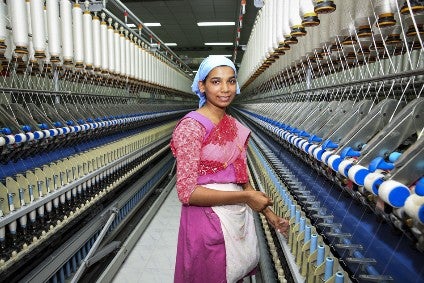
The Sustainable Apparel Coalition (SAC) has been named an accredited host of the Social & Labor Convergence Project (SLCP) framework, helping to advance an industry effort to improve conditions for garment workers.
The SAC brings together over 220 global brands, retailers, manufacturers and organisations from all parts of the apparel and textile industry, including Helly Hansen, Under Armour, Adidas, C&A, Gap Inc and VF Corp. It has been working to harmonise standards relating to sustainability, the environment and social issues, with additions including the Higg Index sustainability measurement tool.
The SLCP, meanwhile, aims to change the way apparel and footwear manufacturers are evaluated by their customers and address the challenge of audit fatigue.
It began in Amsterdam in 2016 as a multi-stakeholder effort to collectively improve the working conditions for garment workers in the global apparel and footwear supply chain. By uniting under a converged assessment, the aim is that organisations can move beyond individually-driven programmes, unlocking funds previously used on proprietary audits to be applied towards the development of scalable industry-wide solutions.
The SLCP Converged Assessment Framework consists of a data collection tool and a verification methodology. Today, the project has more than 180 signatories committed to using the converged assessment in their operations, and is planning to scale up its operations after its plan for the next five years was approved.
As an SLCP Accredited Host, the SAC has incorporated the converged assessment framework into the Higg Index suite of tools as the foundation of the Higg Facility Social & Labor Module (Higg FSLM).

US Tariffs are shifting - will you react or anticipate?
Don’t let policy changes catch you off guard. Stay proactive with real-time data and expert analysis.
By GlobalData“The sheer volume of audits has served to obscure the often unsafe and unhealthy conditions of the millions of garment workers throughout the supply chain,” SAC interim-CEO Amina Razvi says. “By using Higg FSLM at scale, brands, retailers, and manufacturers can assess their social impacts and strategically direct valuable resources towards efforts that meaningfully improve conditions for garment workers globally.”
All factories can complete a Higg FSLM self-assessment on the Higg.org platform. Higg FSLM verification is currently only available in China and Sri Lanka, aligning with the SLCP’s efforts to roll out its operation gradually. Verification services will expand to additional countries early this year. In 2019, the SAC will develop a scored version of the Higg FSLM, in line with the other Higg Index tools, offering factories and consumers increased benchmarking and transparency into the value chain.
Higg.org also hosts the SAC’s Higg Facility Environmental Module (Higg FEM), which assesses the environmental performance of a factory. Higg.org offers SAC members and Higg Index customers the opportunity to seamlessly and efficiently share Higg Index results with business partners. Through the site’s easy to navigate online functionality, customers can benchmark data and set performance improvement targets.
The Higg Index suite of tools supports improved sustainability performance among brands, retailers, and factories around the world to transform the apparel and footwear industry to one that protects the well-being of factory workers, local communities, and the environment.



